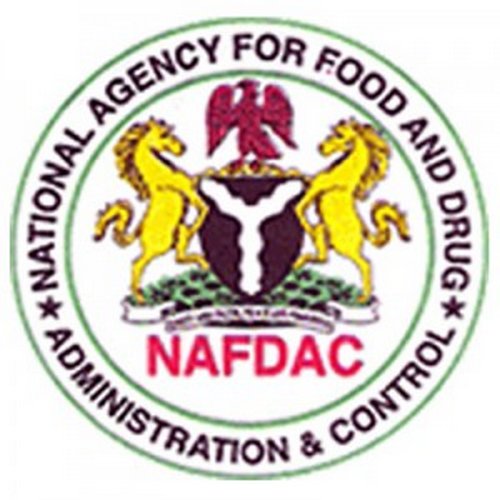.Urges MSME Entrepreneurs to be patient and get NAFDAC Certification Identity Before Exporting goods
The Director General of the National Agency for Food and Drug Administration and Control, NAFDAC, Prof. Mojisola Adeyeye has reiterated the important role that Micro Small and Medium Enterprises (MSMEs) play in the Nigerian economy, saying her Agency would continue to render its unflinching support to them in order to enable MSMEs continue to act as a catalyst to economic rejuvenation.
Reacting to the insinuations in some quarters that it is easier for the camel to pass through the eye of a needle than for an MSME operator to get the required certification for NAFDAC registration,
Prof. Adeyeye, in a statement by NAFDAC Resident Media Consultant, Sayo Akintola, said the average MSME entrepreneur would testify that the relationship between them and the Agency has tremendously improved and become very cordial in the recent past.
Globally, she said MSMEs contribute up to 45 per cent of total employment and up to 33 per cent of Gross Domestic Product (GDP) in emerging economies.
‘’In a recent review of a 2017 survey on MSMEs, it was revealed that in Nigeria, there were 41.4 million MSMEs and about 99 per cent belonged to the micro sub-sector.’’, she said, adding that MSMEs are the bedrock of Nigeria’s industrialization and inclusive economic development; and the most important component of industrialization as set out in the Economic Recovery and Growth Plan’’ of the Federal Government.
She stated that the significance of MSMEs in the nation’s economy cannot, therefore, be over-emphasized.
She further stated that the NAFDAC timeline for the processing of products for registration is Ninety (90) days and that there are consistent efforts to ensuring timelines are met, amongst which are the deployment of a robust e-registration platform called NAFDAC Product Administration and Monitoring System (NAPAMS), which has the capacity for monitoring and assessment of timelines.
‘’However, timely responses to issues raised with applications is required. Some of the compliance issues that are frequently observed range from labelling lapses, inadequate documentations, increased product analysis failure rate & product rejects, especially with highly sensitive products like detection of cyanide in cassava related products’’, Prof Adeyeye further explained. The ongoing trainings and re-trainings of prospective NAFDAC Applicants/MSMEs entrepreneurs on principles of Good Agricultural Practices and other relevant techniques, are helping in yielding desired reduction of such failures.
According to her, if there is a sector that has been supported by NAFDAC the most it is MSMEs ‘’because we reduced the registration fee by 80 per cent for six months last year’’.
She added that the first two hundred applicants received zero registration fee, ‘’while after the first two hundred, we made it 80 per cent zero registration fee. That is palliative which was not done to any other sector’’. In addition, ‘’we waived late renewal fees for those whose NAFDAC Registration licenses expired during the same period.’’
According to Prof Adeyeye, ‘’We did it for MSMEs because they are very key to our economy. The COVID –19 pandemic might have slowed down some people who might have wanted to register. But six months out of the nine months of the pandemic in 2020 was devoted to rendering help to the MSMEs’’.
She however, admitted that because some of our MSMEs are not very computer literate, they may have challenges in terms of e-registration, adding that some are being helped to register.
‘’That is why we talk about assisted registration procedure. We will help those who do not know how to use computer to register’’,
Prof Adeyeye further explained that ‘’If anybody goes online to start our registration process, and encounter any problem there is an internet/online assistant that will ask ‘can I help you.’ I have tried it myself and you can type any request, which would be attended to online’’.
The NAFDAC DG also noted that there is no shortcut to improvement with technology or trade, stressing that ‘’sometimes we want shortcuts. Sometimes, we do not have patience to start something and finish it. No, it does not work that way’’.
According to her, ‘’some people that have products that they think could be exported, take shortcuts. They do not go to NAFDAC to test their products before they are exported. Thereafter, the government of the receiving country stops the product, and they reject it and destroy it. We all need to learn not to take shortcuts’’.
Prof Adeyeye insists that the Agency will not compromise Global Best Practices and standards under the guise of placating its clients who have refused to follow due process to get the required identification certification.
For MSMEs products, she maintains that it is 90 working days, (four and a half months), adding that ‘’If people cannot wait for four months to get their products registered, they may complain’’.
Regarding the granting of approval for MSME production sites, the NAFDAC helmswoman said ‘’If we go to a production site to check whether the place is fit for the manufacturing or packaging of products for human consumption and the place is found to be filthy and may make people sick, we will not approve the site’, adding that ‘’we will say ok do this or do that. If people are not patient to take correction, they may feel frustrated. We have supported MSMEs to a great extent and we will continue to support them’’.
Prof. Adeyeye admonished the MSMEs to always ensure that they comply with all relevant government policies and regulations; collaborate more amongst themselves to jointly engage government constructively on issues concerning them; foster unity and cohesion for increased resources in achieving better economic benefits.


















